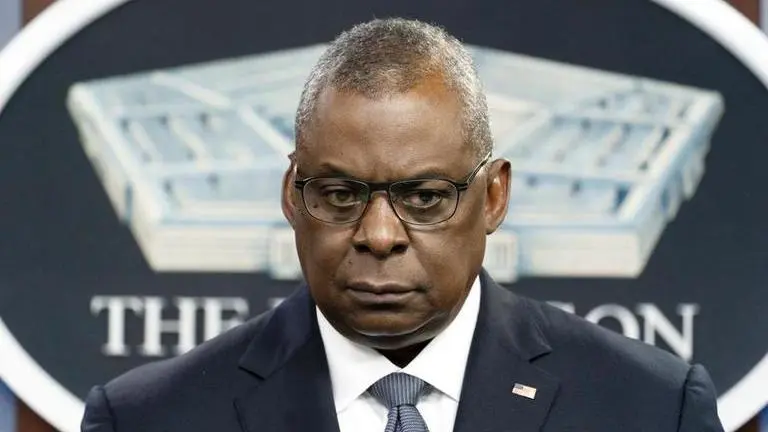Updated 20 November 2021 at 20:33 IST
US: Pentagon chief Lloyd Austin vows to tackle Iran's nuclear program in Bahrain
US Defence Secretary Lloyd Austin pledged to stop Iran from obtaining nuclear weapons and also to tackle its “dangerous use” of suicide drones in Mideast.
- World News
- 3 min read

United States Defence Secretary Lloyd Austin vowed on Saturday, 20 November to stop Iran from obtaining nuclear weapons and also to tackle its “dangerous use” of suicide drones in the wider Mideast. America’s top defence diplomat’s pledge came as negotiations over Tehran’s atomic deal with world powers remain stalled. Austin’s remarks that came while speaking at the annual Manama Dialogue in Bahrain, appeared to aim at reassuring US’ Gulf Arab allies especially when US President Joe Biden administration attempted to revive the nuclear deal.
The 2015 nuclear accord limited Iran’s enrichment of uranium in exchange for lifting the economic sanctions. However, Biden’s predecessor Donald Trump withdrew from the nuclear deal in 2018 and imposed crippling sanctions on the Islamic Republic. US Defence Secretary’s remarks also came after Gulf sheikhdoms saw the U.S.′ chaotic withdrawal from Afghanistan.
As per The Associated Press report, America’s withdrawal from the war-ravaged nation raised concerns about Washington’s commitment to the region as defence officials said that they want to pivot the forces to counter observed challenges from China and Russia
“The United States remains committed to preventing Iran from gaining a nuclear weapon. And we remain committed to a diplomatic outcome of the nuclear issue,” Austin told an event organised by the International Institute for Strategic Studies.
He added, “But if Iran isn’t willing to engage seriously, then we will look at all of the options necessary to keep the United States secure.”
US intelligence agencies, IAEA on Iran
Meanwhile, Iran has long maintained that its nuclear program is peaceful even though the American intelligence agencies and International Atomic Energy Agency said that Tehran had an organised program until 2003. Iran’s mission to the United Nations, as per the report, did not immediately respond to a request for comment on Saturday. Since the Trump administration’s withdrawal from the nuclear accord, there have been a series of escalating incidents that struck the wider Mideast.
Advertisement
The aforementioned incidents include drone and mine attacks targeting vessels at sea along with assaults blamed on Iran and its proxies located in Iraq and Syria. In early 2020, the United States also directed an airstrike that killed the top Iranian general in Baghdad, to which, Iran retaliated by targetting American troops in Iraq with ballistic missiles. Under the present Biden administration, US military officials are also looking at a broader relocation of forces from the Mideast to other regions.
In his remarks, Austin hinted at the same plan and said, “Our potential punch includes what our friends can contribute and what we have prepositioned and what we can rapidly flow in...Our friends and foes both know that the United States can deploy overwhelming force at the time and place of our choosing.”
Advertisement
(IMAGE: AP)
Published By : Aanchal Nigam
Published On: 20 November 2021 at 20:33 IST
